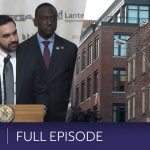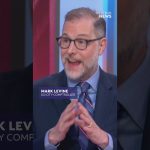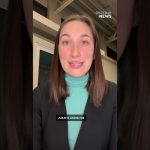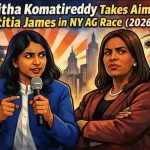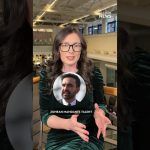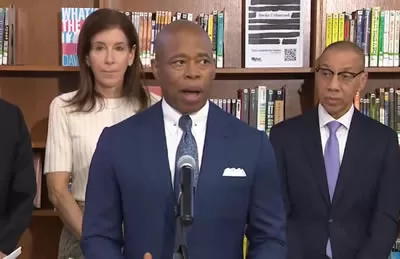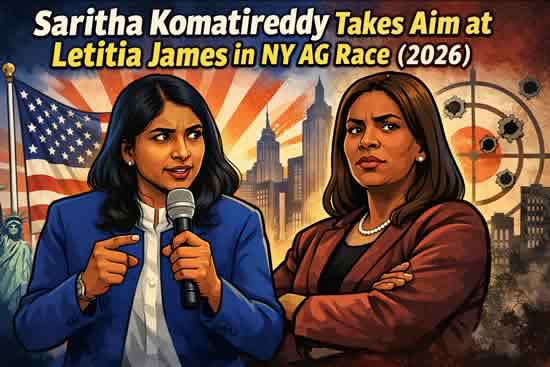Linda Johnson, President and CEO, Brooklyn Public Library: Good afternoon, everyone. It’s my great pleasure to welcome Mayor Adams, Chancellor David Banks, Assemblymember Brian Cunningham, Councilmember Chi Ossé, and my friends, Tony Marx and Dennis Walcott, presidents of the New York and Queens Public Libraries.
At Brooklyn Public Library, we are fortunate to have many special occasions to mark throughout the year, summer reading kickoffs, graduation ceremonies for adult learners, recognition for our award‑winning staff named the 2023 Librarians of the Year. And in recent years, Banned Books Week, which is surely the most bittersweet of these occasions, especially this year.
We are witnessing another record year of book bans and challenges from groups around the country who aim to strip our shelves of ostensibly inappropriate titles. And so we have all come together today to tell these groups and to assure our young readers we will not allow censorship in New York City.
As many of you know, in April of 2022, Brooklyn Public Library launched a Books Unbanned initiative that offers teens ages 13 to 21 free access not just to banned books, but to our entire digital collection. Since then, over 7,000 young people have applied for an e‑card from all 50 states.
This is not just for show. They have collectively checked over 156,000 books, when applying for an e‑card, one young person told us libraries near his hometown have books about LGBTQ issues in their collection, but somehow they can never be found. Another was told by a librarian that they didn’t need to get those ideas in their heads.
While we are delighted to be able to provide this access, we are frankly outraged that we have to. Limiting access to providing one‑sided… Or, providing one‑sided information is antithetical to the mission of a library and is a threat to democracy itself.
Still there is hope. In the last year, our friends in Seattle, Boston, San Diego and Los Angeles County libraries have joined Books Unbanned. This week, we launched a website where young people can share their experiences with censorship. And our new podcast Borrowed and Banned highlights the stories of writers, librarians and educators who dare to fight back.
Tomorrow, October 4th, is our day of action, and you, too, can join the fight by posting a picture with your favorite book and use the hashtag Freedom to Read. Let’s remind everyone that the freedom to read whatever you choose is a fundamental right.
And now, it is my great pleasure to introduce a true friend to the city’s libraries who understands the gravity of the work we do, the importance of reading and free speech, my great friend, New York City Mayor Eric Adams.
Mayor Eric Adams: Thank you very much. Thank you, and to all of our heads of our libraries in the city. They are playing a role larger than I could have ever imagined from having Jay‑Z’s words on the front of a building such as Brooklyn Library, to what has happened in Manhattan, in Queens, and just finding creative and new ways to lure our not only young people, but our adults into this building where there’s a wealth of information and how one could find and discover themselves.
I just left an event that we call Breaking Bread, Building Bonds, a thousand dinners around the city. At each dinner, 10 people at a minimum come from different backgrounds, different ethnicities, different cultures, and so we could do something revolutionary, and that’s talk to each other and really learn from each other.
And nothing personifies that more than when you walk into a modern library. It is more than what it was as a child to be able to not only read, but to use the various visualizations and to really cross pollinate ideas and concepts as we deal with painful, past and challenging questions for the future.
And that discomfort is growth. You do not grow without discomfort. You do not grow by hearing and doing the same things you heard before. My gym trainer tells me all the time, no pain, no gain. And that painful reality of what we have done not only here in New York, in the state, in the country, but on the globe. There’s some challenging times, and we need to read about it, we need to face it and we need to be honest about it.
And so the freedom to read, that means so much to so many. Just think about years ago, it was against the law for African Americans and Black folks to read. One must ask why. Why do we want to assure that you can’t read and you could not find the information you wanted in reading materials? Because reading is freedom. The only way you can incarcerate someone mentally is to take away their ability to be able to think and read for themselves.
And this initiative, our library leaders coming together and stating that it is not going to happen under our watch. It is not going to be the normality that we are going to allow. We are going to stand up and state that the freedom to read, not only books that we enjoy, not only books that are instructional, but books that challenge us, that really compels us to think differently about our surroundings and people we don’t know because we have substituted the knowledge that we find in books with all those misinformation and creative ways of giving us disinformation.
And so I thank these leaders of the libraries for being bold enough to state we’re going to embrace the freedom to read, the freedom to think on our own, the freedom to grow, the freedom to lean into our discomfort, the freedom to understand different points of views, different outlooks, different philosophies, allow us to move from the point of only believing we know what’s right, but to seek to understand so we can be understood. And that starts turning one page at a time, one ebook at a time, one concept at a time. Let’s continue to have the freedom to read. Thank you very much.
Johnson: Thank you, Mayor Adams. And now, I’d like to bring my partner from the Queens Public Library to the podium, Dennis Walcott.
Dennis Walcott, President and CEO, Queens Public Library: Thank you very much, Linda. And Mr. Mayor, as usual, thank you for your words. They’re always both inspirational and true. And when we talk about our libraries, our libraries in the five boroughs of New York City are doing an outstanding job to talking about the issue, but also making sure we set up our rooms and our libraries for people to have the freedom that the mayor talked about. And to me, that’s the most important thing.
And I’m wearing special socks today, and these socks are socks of books that have been banned. So, on one side you see the titles of the socks, and the other side, you see all the crossing out of those titles. And I’m not going to read each title that’s there, but some of the titles on these socks are Catcher in the Rye, the Song of Solomon, Native Son, Lord of the Flies, the Handmaid’s Tale and Invisible Man.
And sadly, there are many, many, many more books that people are trying to read. But luckily, with our great mayor, luckily with work that Linda and Tony are doing, luckily with our great librarians and all the hardworking staff of our libraries in the five boroughs, we are not going to allow books to be banned.
But at the same time, we also face other challenges. The challenges in the streets of people trying to stop drag story hours to make sure we don’t exchange different views and making sure that people try to really react to things that unfortunately are untrue.
Our goal is to make sure we liberate what’s going on in society, to build a better civic world, to make sure, as the mayor indicated, that people have the freedom, both to read what they want to read, to discuss what they want to discuss, disagree when they want to disagree, but making sure there’s an opportunity in our libraries to provide the sources of that information.
So, Mr. Mayor, I want to thank you for your leadership, Linda and Tony, what you’re doing is truly outstanding. I want to thank you as well. But to all of our great librarians, to our staff who are out there working day in and day out to make sure that our customers receive the services and the books and materials they need to have, I want to say thank you to them because they are doing fantastic work, serving the needs of our customers. Thank you, Linda, for doing everything.
Johnson: Thank you, Dennis, and thank you for giving a shout out to the librarians. We have a few folks standing in support of the work that we’ve been doing on this effort. When I hear about some of these books that are being banned and I, you know, sort of rehearing them, again, it just breaks my heart.Part of truly the American canon and the great books of our country. Our next guest is Tony Marx, the president and CEO of the New York Public Library.
Anthony Marx, President and CEO, New York Public Library: Thank you, Linda and Dennis. It’s an amazing New York partnership, the various programs that are starting. We have also now launched a Books for All National Book Club, where we are taking titles and making them available to anyone in the country, having the authors join for conversations, trying to create community.
We’re all trying to do our part in the face of something that is unthinkable: a doubling in the number of book bans just in the last two years, and increasingly focused on libraries. About half of all book banning is targeted at libraries. Just two years ago, that was about 16 percent.
And we know that so many of these books are about race or about LGBTQ, especially for teens, but also include classics, books that you just can’t understand how this is possible. I mean, ‘Where the Wild Things Are’, banned? That’s just crazy.
But we have seen this before. Ideologues whipping their scared followers into a frenzy to force conformity, to impose a monoculture, to protect some core, but actually just eliminating books and voices that threaten their prejudice. Efforts to exclude, as the mayor talked about so eloquently, themes of history or characters that do not fit some master narrative are deemed toxic and removed.
First, books are banned, then ideas, then people, then races. The largest public libraries in America stand here with our great mayor to say, this is not what New York believes in. And that we will not stand idly by buy and see our brethren and the positions they found themselves. We must make clear our values that we believe in everyone’s ability and right to learn and to build a better life.
What could be more New York than that? To be informed by the widest possible explorations. Because everyone has the right to find themselves in a book to know that they’re not alone. And everyone has the right and responsibility to learn about different people and worlds to see the strength and innovation and diversity. Again, what could be more New York than that?
And so essential, because only in learning about differences, can we become empathetic, so necessary in a world where we are different and have to find ways to celebrate and resolve those differences, not crush them or each other. We must trust everyone’s to choose for themselves to read and how to explore. Parents should have a right to guide their children.
But let me be clear, no one has a right to tell me or my children or your children what they can’t read. I could not be… We could not be more proud to stand here with the mayor of New York, who’s been such a supporter and enthusiast for what libraries stand for and what the the world of learning means to take his spotlight, his national [inaudible] shine it on this issue to say New Yorkers won’t stand idly by. We will protect and defend everyone’s right to be respected and their rights to choose what they want to read and learn to be respected. Mr. Mayor, thank you.
Johnson: Thank you, Tony. And now it’s a great pleasure to welcome a special guest, a 16‑year‑old Iago Macknik‑Conde, who is already an activist for the freedom to read. He has also been a leader with Brooklyn Public Library’s Today’s Teens, Tomorrow’s Techies internship program, and he won first place in the library’s teen writing contest. Please join me in welcoming Iago.
Iago Macknik‑Conde: I was in sixth grade when I first read ‘The Lottery’ by Shirley Jackson. I can still recall my shock at the story’s twist that an ordinary community could turn against one of their own just to uphold tradition. This was nothing like the happy endings I had come to expect from my previous readings.
I disliked the story intensely, but it stayed with me and eventually became one of my favorites. Other banned books followed, ‘The Giver’, ‘Animal Farm’, ‘Fahrenheit 451’, and I noticed the ways in which they held a mirror to our own society. Banned books teach us the dangers of conformity, of tradition, of accepting common knowledge without examination. They’re necessary even if they make us uncomfortable.
When school boards or governments ban books, they perpetrate the attacks on free expression and critical thought that banned books warn us against. America is at a pivotal moment in its history. The choices that we make today will shape the future of our nation. This is why it matters that we keep information open and accessible for coming generations so that people will always understand the value of freedom and are willing to protect it.
At the Brooklyn Public Library, I have found comradery and mentorship and developed the confidence to question accepted wisdom. Today, the Brooklyn Public Library is a world leader in the fight against book banning.
As a member of the library’s Intellectual Freedom Teen Council and a graduate of the Freedom to Read Advocacy Institute, I consider myself fortunate to be part of this cause to have discovered a community of like‑minded youth advocates for intellectual freedom and to have the tools to support others who suffer under book bans. Thank you.
October 3, 2023
Video available at: https://youtu.be/TO4HbBE1wNA
NYC.Gov – press office cityhall.nyc.gov – Midtown Tribune News –
Big New York News BigNY.com
Banned Books Week is an annual awareness initiative jointly promoted by the American Library Association and Amnesty International. It commemorates the freedom to read, raises awareness about books that have been banned or challenged, and sheds light on persecuted individuals. This event has been held in late September or early October since 1982. The campaign in the United States emphasizes the significance of ensuring access to unconventional or unpopular perspectives for anyone interested in reading them. It also underscores the need to maintain public access to materials so that individuals can form their own judgments and viewpoints.

